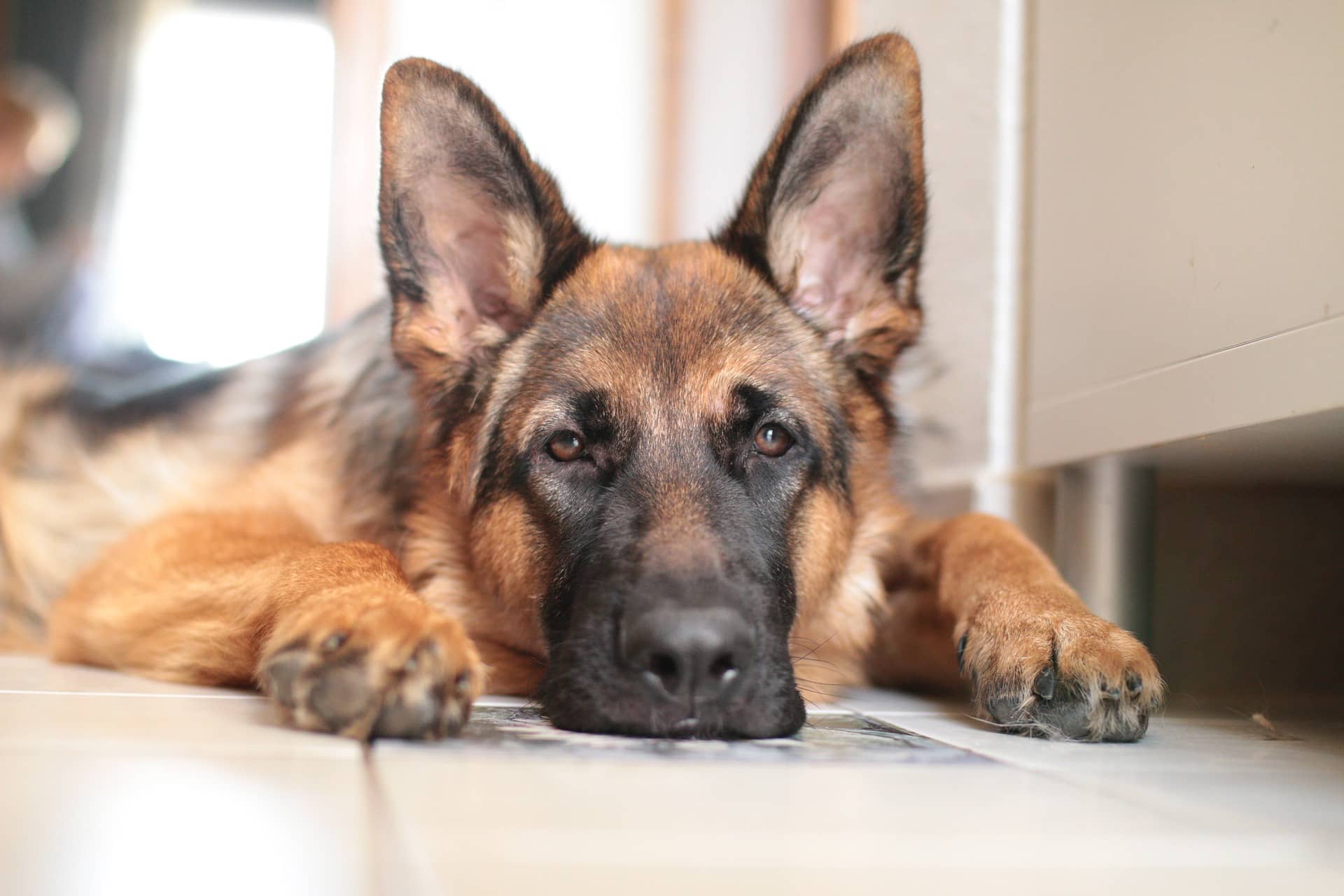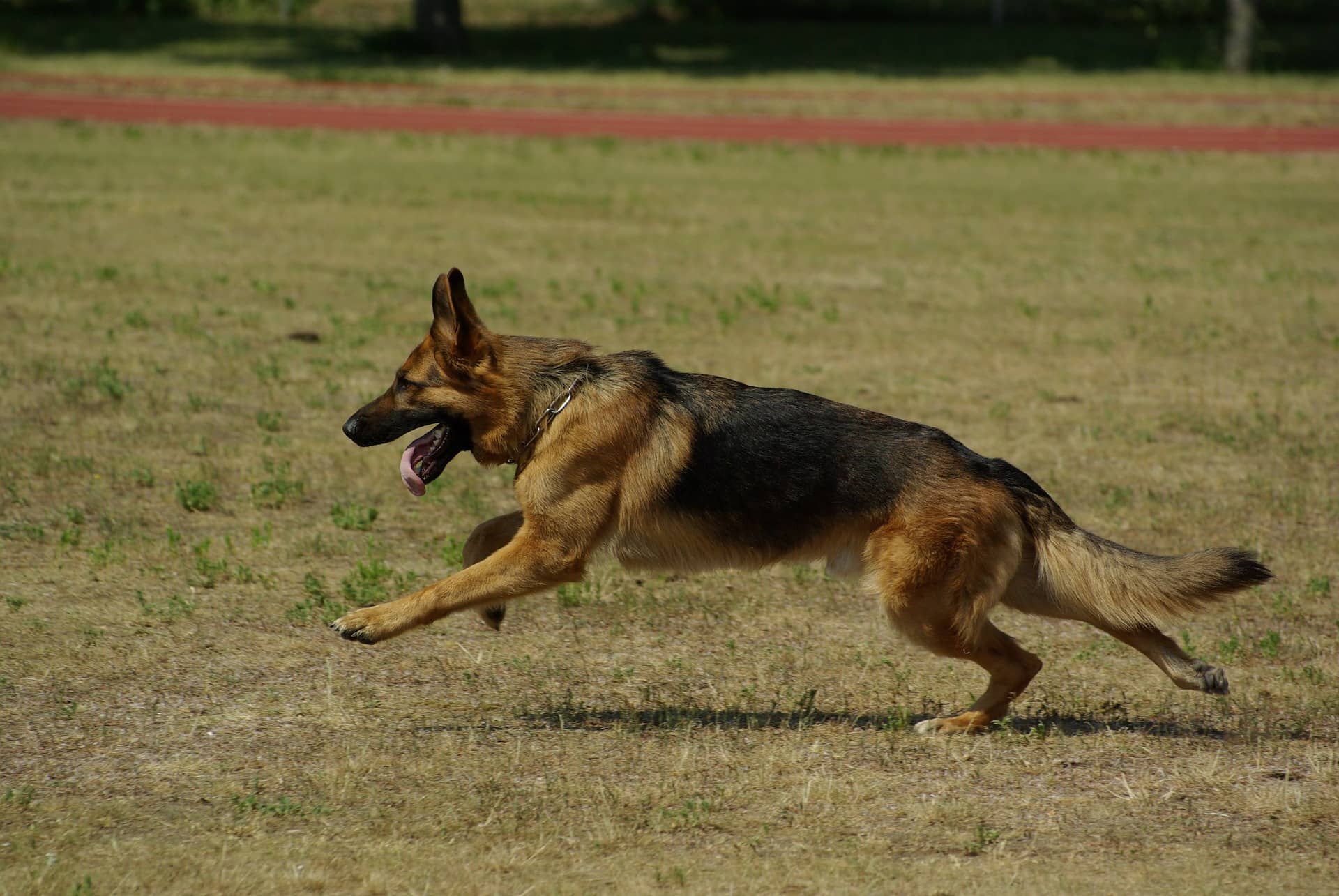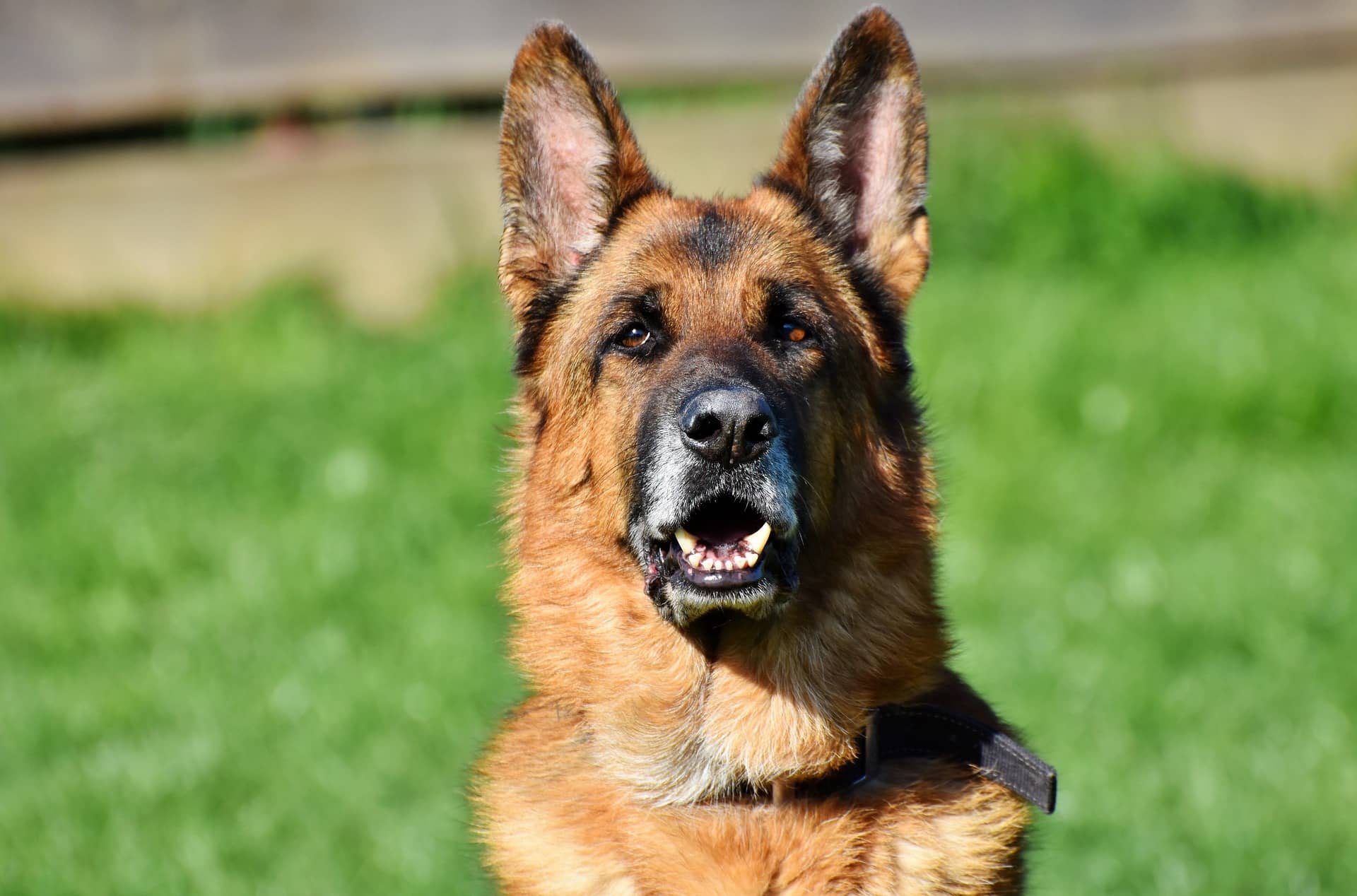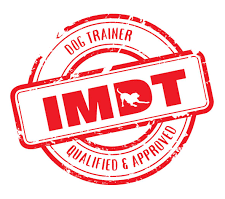In this blog post, we’ll be sharing our top ten German Shepherd tips to give you some insight into what it’s like to own this breed, to help you decide whether they’re the right breed for you! Imposing, loyal, athletic, intelligent, and energetic are all good words to describe the German shepherd dog (GSD). Unfortunately, all too often other words pop to mind such as wilful, unruly, nervous, aggressive, and unpredictable. However, don’t be down-hearted because with the right guidance and appropriate training you can improve a German shepherd’s behaviour out of all recognition from their previous incarnation! Training a dog with the intelligence, power, and agility of a German shepherd requires an understanding of the guidance they seek from an owner. Get this right and your reward will be an attentive dog that is a joyful companion to be proud of.
German Shepherd tips you need to know!
#1: Know the GSD is a Working Dog
This breed of dog is descended from working dogs and as such has a pretty much insatiable appetite for exercise! When you meet your dog’s needs to run, chase, jump, and retrieve on a daily basis, you are will have a happy dog that is eager to please. This has many benefits and means that they’re tuned in when it comes to training, rather than distracted and looking for trouble.
You should also know that boredom is the enemy when it comes to training. Your first task is to meet the dog’s need for physical activity. Take stock and see what adjustments you can make to schedule at least two, 45-minute active exercise sessions each day. If your work schedule doesn’t allow this, then consider using a dog walking service to ensure that your dog gets all of the exercise they need each and every day.
#2: The 3 C’s: Clear, Consistent, Cues
To train a GSD means a combination of exercise and mental stimulation. To be effective you need to stick to certain basic rules, which include the 3Cs:
- Clear: Have a clear set of commands that everyone uses. Remember, English is a foreign language to your dog so using “Down” and “Drop” for the same action will confuse him. Decide on command words and stick the list on the fridge door so the family know the correct cues to use.
- Consistent: Apply all house rules consistently. No feeding from the table means just that 7 days a week, with no exceptions at the weekend.
- Cues: Use the tone of voice to guide your dog and give verbal cues to mark good and bad behaviour. Let your know he’s about to make a wrong choice with a short, sharp, “Uh no”, followed by a happy “Good boy”, when he does as asked.

#3: Reward-based Training
Next on our list of German Shepherd tips is to use the best methods of training possible for a happy and well-rounded dog. You should know that dominance theory is disproven. Yes, German shepherds need a firm hand but alpha rolls and harsh punishment are liable to create a nervous, subservient dog that behaves unpredictably and resorts to aggression to meet their needs. Instead, train your dog by rewarding their good behaviour.
The rules are easy, you use a treat, praise, or play to reward the dog when they correctly carry out a command. Guide your dog with a disapproving “No”, when he makes the wrong decisions. This way, they will soon learn that the correct way to earn goodies is to be a good boy and training becomes fun…This is the basis behind all of Royvon’s training techniques, so we know that they truly do work!
#4: Button-Down the training basics
Teaching a rock-solid “Sit”, “Stay”, “Come,” and “Look” with your German Shepherd puts you in control in so many different situations. Don’t underestimate the power of “Look” to focus your dog’s attention on you, rather than a passing cyclist. This avoids a nasty confrontation and can make walks a pleasure, without you having to worry about your dog’s behaviour.
#5: Consider the GSD Character
If you’re thinking about adding one to the family, you need to understand that, as a breed, the German Shepherd dog is intelligent but sensitive. When training this breed, it’s important to use compassion, kindness, and knowledge, to teach your dog how to behave. Engage your dog’s intelligence and motivate him with things he loves doing. For example, if he loves playing ball, use this is a reward for a command well done. Likewise, remember GSDs are capable of learning complex routines (think of what service dogs do!) as long as they are broken down into individual steps.
For example, provide mental stimulation by teaching your dog to put his toys away in a box. Teach one step at a time (Pick up and drop a ball, fetch and drop a ball, fetch and drop a ball into a box) only moving onto to the next step when he’s mastered the first. This is a great way to keep your dog occupied and mentally stimulated, while also being fun to train!
#6: Don’t ‘Baby’ your GSD
When it comes to German Shepherd tips, it’s important that any potential owner knows how to treat this unique breed. A GSD feels most secure when he knows and understands the rules. He thrives on firm, consistent (that word again!) fair, leadership. To this end, you shouldn’t treat him as a lapdog as it will confuse and unsettle him. If you’re looking for a dog like this, then the German Shepherd breed is ultimately probably not right for you.
Any owner needs to know that a happy dog looks for guidance and finds routine reassuring. Once again, write down the house rules and stick them to the fridge for all the family to use, and make sure that they actually stick to them. Know that treating your dog to the occasional cuddle on the sofa will only confuse and unsettle him, which may lead to challenging behaviours down the line.
#7: When it comes to German Shepherd tips, Health Matters
GSDs are prone to joint disease and hip dysplasia. This is vital for any owner to know and consider before they add a GSD to their home. You must protect the developing joints of a young dog by feeding them a good quality diet that is designed for large breed growth. Also, it’s important to avoid over strenuous exercise such as agility training until those bones have finished growing at around 12 – 18 months of age.
You should also know that German Shepherds are known for having a sensitive digestive system. If your GSD has regular faecal accidents, he might have guts issues. If this is the case, feed them an easy to digest diet that is low in cereals and soya, plus check in with your vet if the dog’s poop is soft or cowpat-like.
#8: Be Aware Of Weighty Issues
GSDs are meant to be wedge-shaped with a lovely tucked up waistline. Having said this, it’s unfortunately all too easy for a GSD to pile on the pounds and lose that midriff definition. If this is the case watch out for hidden calories in training treats. Keep up the rewards but be sure to cut back on your dog’s meal-time kibble, and weigh out their ration at the beginning of the day and put some aside in a pot to use as training treats.

#9: Use the Right Tools for the Job
Perfection doesn’t happen overnight, and neither does the perfect recall. Be realistic and take the pressure off yourself by using the right tools for the job to help build your German Shepherd’s recall up. For the non-responsive returner, you can attach a long line to their collar. That way the dog has the option to respond of their own free will, but if they are too distracted you still have control.
Likewise, if your dog is over-reactive and behaves aggressively, consider using a muzzle. The peace of mind that they can do no harm will relieve your tension, which in turn helps the dog be more relaxed.
#10: Seek Professional Help
And finally, it’s undeniable that German Shepherds are strong, demanding dogs. If the training isn’t going to plan don’t be afraid to call in the professionals. It’s much better to get a plan put in place sooner rather than later, before bad habits become deeply entrenched and are hard to correct.
Hopefully, this list of German Shepherd tips has been helpful, whether you’re a prospective owner or already have a GSD! If you do require professional help to train your dog, we would love to assist you at Royvon! We have been a family run business with a particular interest in GSDs for over 60 years. We use only the best and latest positive training methods to help you and your dog develop positive habits that can make your life together far more harmonious! To find out more about us and how we might be able to help you develop the GSD of your dreams, please visit our website or get in touch today to discuss our virtual and in-person training options.





[…] Hi to Scooby the GSD mix. He came to Royvon as a nervous boy and arrived in a whirlwind of barking and lunging at […]
[…] the German Shepherd’s behaviour problems had cost inconvenience to his owners. He has been taken to specialists, dog […]
[…] the video below to see how Misty the German Shepherd got on in our behaviour modification […]
[…] How to make your dog a role model. Teaching your dog to make friends and learn social skills with Bear the German Shepherd. […]